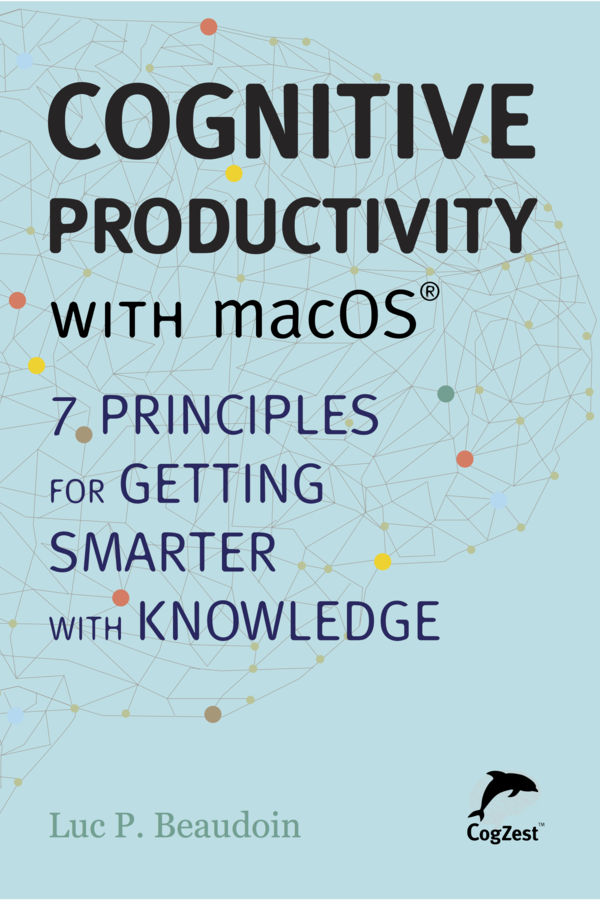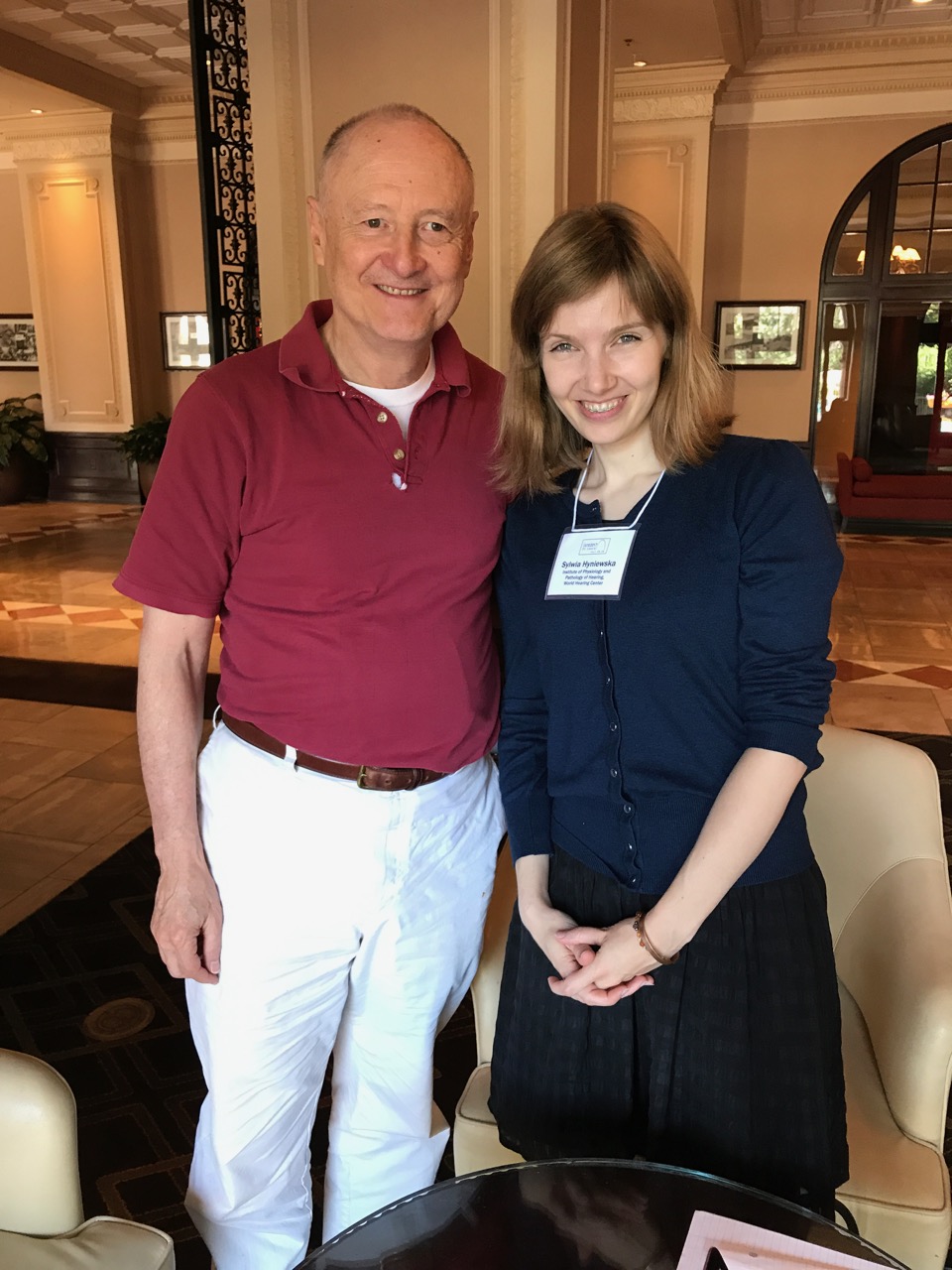My two Cognitive Productivity books are on sale today for Cyber Monday. 50% off or more Continue reading Cyber Monday 50% off Coupons for Cognitive Productivity Books
Author: Luc P. Beaudoin
How Do You Judge the Helpfulness of Information? And Why Does This Matter?
One of the few beneficial side-effects of the 2016 American federal elections, in which Donald Trump was elected President, is that thinking people are more aware than ever of threats to knowledge. Post-truth has entered dictionaries. We complain about fake news. We point fingers.
Assessing sources of information has always been one of the most difficult cognitive challenges thinking-people face. I discussed this topic at length in my first book. Yesterday, I published an additional chapter of my new book that deals extensively with this issue. It is the third of seven principles of Cognitive Productivity with macOS®: 7 Principles for Getting Smarter with Knowledge:
Assess Analytically
Continue reading How Do You Judge the Helpfulness of Information? And Why Does This Matter?
Response to Chad Grill’s Article “Reading Books Will Help You Build These 7 Habits”
In his article, “Reading Books Will Help You Build These 7 Habits” Chad Grills reminds us of the importance of reading great books.
I have to agree with Chad’s claim that “Books are the most undervalued and under-appreciated technology in the world.” Coincidentally, Continue reading Response to Chad Grill’s Article “Reading Books Will Help You Build These 7 Habits”
First Installment of Cognitive Productivity with macOS® Published on Leanpub!
I’m pleased to announce the publication of the first installment of Cognitive Productivity with macOS®: 7 Principles for Getting Smarter with Knowledge, which is now for sale on Leanpub!

This book is based on Part 3 of Cognitive Productivity. Whereas Cognitive Productivity contains only text and images, I’ve recorded over 70 screencasts for this new book. Continue reading First Installment of Cognitive Productivity with macOS® Published on Leanpub!
Don’t Be Discouraged by Peer Excellence: How Psychology and Cognitive Science Can Contribute to Cognitive Productivity
I’ve not talked a lot about perceived self-efficacy on this blog, and yet it is one of the most important pre-requisites for cognitive productivity, success and happiness.
I came across this article in one of my news feeds: Discouraged by Peer Excellence: Exposure to Exemplary Peer Performance Causes Quitting. I think we can all relate to this phenomenon. Everyone has experienced being around someone who is far more competent than himself or herself, and even than one can become with practice. My Cognitive Productivity framework is all about using knowledge to become more effective. Still, genetics and early experience do (differentially) place upper limits on everyone.
I clearly remember when, many years ago, I started working at Abatis Systems. I was the first employee. Continue reading Don’t Be Discouraged by Peer Excellence: How Psychology and Cognitive Science Can Contribute to Cognitive Productivity
Why So Quiet (Again)? 2017 Update and Some Thoughts about Engaging in Multiple Projects
This year, I have not been blogging as much as I had expected to. Here’s the background.
Work-Arounds to macOS 10.13 (High Sierra) PDF Rendering Problems (Skim)
Cognitive Productivity reader, Richard Holmes, notified me that macOS 10.13 (“High Sierra”) worsens the PDF rendering problems Apple introduced in macOS 10.12, Sierra, that I blogged about earlier. The problems are in Apple’s PDFKit used by third party developers. Apple seems to be using a private API to work around these problems in its Preview app and Safari. (In beta’s of macOS 10.13, however, Preview and Safari had PDF rendering issues.) Fortunately, Richard has discovered some work-arounds, which I describe below. That’s important, because, this issue aside, Skim is the most cognitively potent PDF reader for macOS.
Continue reading Work-Arounds to macOS 10.13 (High Sierra) PDF Rendering Problems (Skim)
Do You Know Your Own Moods? Pointers to a Progressive Research Program on Core Affect
Quick: What mood are you in right now? This (loaded) question is interesting because it can help us deeply understand ourselves. It’s not that one’s current mood is highly informative, but that in order to understand oneself it helps to have a helpful mental model of moods. This is something I struggled with until I read Robert Thayer’s Calm Energy, and later, James Russell’s theory of “core affect”.

Fifty Years after Herbert Simon’s Landmark Contribution to Emotion Research: “Motivational and Emotional Controls of Cognition” (1967)
It is Labour Day week-end! This is a time to celebrate great knowledge work. It is also a time to ask “Have we been using the best conceptual tools?” And “how can we build better knowledge?” Let’s keep these questions in the back of our minds as we consider the following
Fifty years ago this year, Herbert A. Simon published “Motivational and emotional controls of cognition”. There, he expressed one of the most important insights about emotion and motivation (and hence perhaps of psychology) of the last century. Continue reading Fifty Years after Herbert Simon’s Landmark Contribution to Emotion Research: “Motivational and Emotional Controls of Cognition” (1967)
Spinning a Swirly Solution to Skim’s Slow PDF Content Rendering Issue
![]() My Cognitive Productivity toolkit makes heavy use of Skim, the ironically named PDF delving app for macOS. Unfortunately, however, in its release of macOS Sierra, Apple introduced major problems for third-party PDF rendering apps like Skim, problems that Apple itself somehow worked around in its Preview app (suggesting that Preview uses some non-public APIs, tsk! tsk!).
My Cognitive Productivity toolkit makes heavy use of Skim, the ironically named PDF delving app for macOS. Unfortunately, however, in its release of macOS Sierra, Apple introduced major problems for third-party PDF rendering apps like Skim, problems that Apple itself somehow worked around in its Preview app (suggesting that Preview uses some non-public APIs, tsk! tsk!).
The problem causes PDF to be rendered extremely slowly, sometimes taking over a minute!, and inconsistently. I logged a bug on Skim’s Sourceforge project in December 2016.
Continue reading Spinning a Swirly Solution to Skim’s Slow PDF Content Rendering Issue
